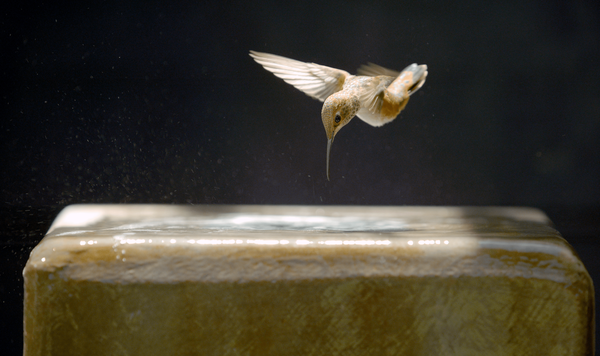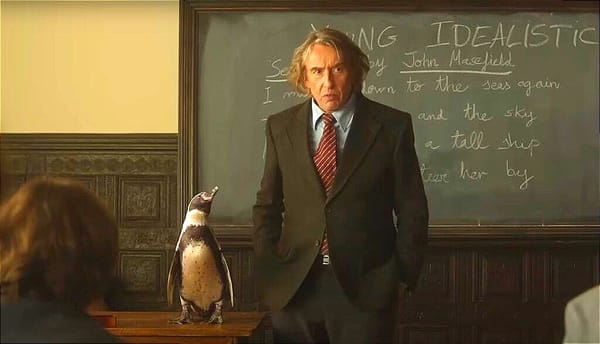The Curse of the Thanksgiving Movie
They're hardly turkeys, but films set during the holiday offer mostly dark meat.
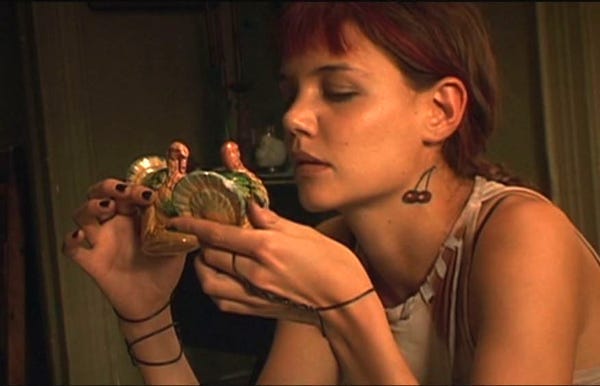
The Nut Graf: You think holiday movies are full of good cheer? Those are Christmas movies. Thanksgiving movies are all about the families that drive us crazy, from “Pieces of April” (available on demand, **1/2 stars out of ****) to “The Humans” (premiering on Showtime, *** stars out of ****).

Thanksgiving is a time of sacred family traditions, and one of those traditions is my cousin Bill giving me hell about “Pieces of April.” Every. Damn. Year.
He’s my wife’s uncle’s stepson, to be precise, but we’ve been hanging out at his mom’s house in Morristown for over 25 Thanksgivings now, so Bill’s pretty much blood. “Pieces of April” is a 2003 comedy-drama that stars Katie Holmes as a punk-ish Manhattanite cooking Thanksgiving dinner for an estranged family driving in from the suburbs, and it was a hit at Sundance and in independent art-house theaters back in the day, if not a commercial smash. Critics liked it, too – the film has an 84% rating at Rotten Tomatoes, which doesn’t mean much, and a 70% rating at Metacritic, which means more – and Bill certainly did, but this critic didn’t. To me, “Pieces of April” played like a fake indie and my review in the Boston Globe slagged the film as “sentimental hokum… a shell game that replaces the comedy of observation it sets out to be with glib one-liners, shallow characterizations, and a sweet but naive vision of racial harmony.”
That’s why every year when a deadpan Bill asks “So what’d you think of ‘Pieces of April?’” over the marshmallow yams and gravy boats, it’s his way of gently suggesting, Dude, you got that one wrong. And maybe I did. We missed the extended family get-together last year due to COVID and we’re missing it this year, too, so as part of a roundup of Thanksgiving movies – and as an olive branch held out in absentia to Cousin Bill – I thought I’d give the movie a belated second look.
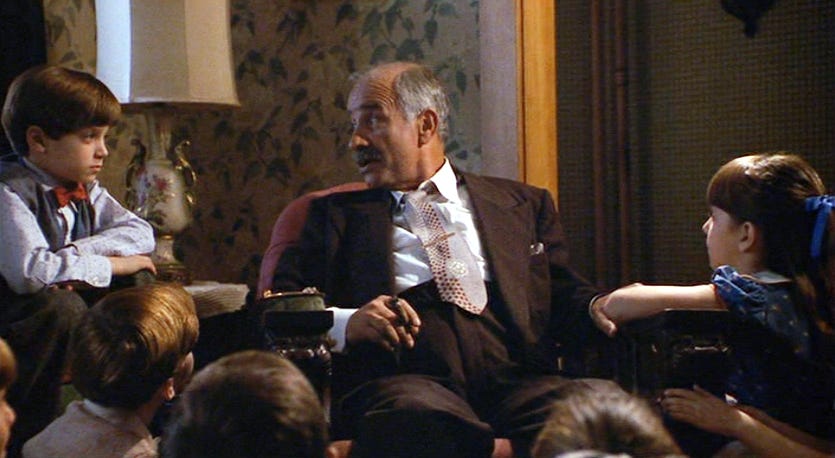
But, first, a word about Thanksgiving movies: They’re dark. I mean really dark. While a Christmas movie generally celebrates a renewal of faith – in family, in Jesus, in Santa, whatever – films set in or around Turkey Murder Day are all about families and their dysfunctional discontents. (Oddly, this stands the famous Tolstoy dictum on its head: All happy Xmas movies seem to be happy in their own way; all unhappy Thanksgiving movies share a similar misery.) As part of my informal survey, I rewatched Barry Levinson’s Jewish immigrant epic “Avalon” (1990, streaming on Paramount+, for rent elsewhere) for the first time in 30 years, recalling that its structure hinged on repeated returns to the Krichinsky clan’s Thanksgiving feasts. The first one we see is warm and crowded, the Old Country alter kockers wondering why they have to eat turkey, they don’t even like turkey, while the kids hang out in the basement blowing up model airplanes. The second Thanksgiving, several years later, presages a family rift when the bird gets carved before Uncle Gabriel (Lou Jacobi) shows up late as usual, storms off in a huff, and never speaks to his brother (Armin Mueller-Stahl) again. The film’s final Thanksgiving is a vision of bleakness: a family of four eating turkey on TV trays in a darkened living room, watching another family celebrate Thanksgiving on television. That’s assimilation, folks!
“The Ice Storm” (1997, for rent on Amazon, Google Play, YouTube)? It’s a brilliant movie, but holy hell: Adultery, jealousy, psychosis, and random death in a preppie Connecticut suburb over the holidays. (Interestingly, Elijah Wood has key roles as different kinds of innocents in both this and “Avalon.”) “Scent of a Woman” (1992, streaming on Peacock, for rent elsewhere)? Disability, suicidal depression, and telling your brother how to sexually please his wife at the holiday dinner table. (And an Oscar for Al Pacino at long last, so there’s that.) “Planes, Trains, and Automobiles” (1987, streaming on AMC+, DirecTV, Fubo, for rent elsewhere) offered a much-loved change of pace for writer-director John Hughes and a dream teaming of Steve Martin (prissy) and John Candy (slobbery) as two businessmen struggling to get home to their families for Thanksgiving, but underneath the antic comedy is a wide streak of melancholy. Woody Allen’s “Hannah and Sisters” (1986, streaming on Starz, for rent elsewhere) starts with turkey and two years later ends with turkey and also with the couples around the table resorted and resolved; the last scene is profoundly joyous but it’s tough emotional sledding getting there. “Krisha” (2015, streaming on DirecTV, Fubo, Hoopla, Kanopy, and Showtime, for rent elsewhere), the fabulously uncomfortable writing-directing debut of Trey Edward Shults (“Waves”), is the ultimate Thanksgiving nightmare comedy, about an aging family fuck-up (Krisha Fairchild) who shows up to rattle her relatives’ cage. (Incidentally, the opening lines from my Globe review for that film remain relevant to the season: “Every family has a basket case, the relative who won’t or can’t behave. If you think yours doesn’t, it’s probably you.”)
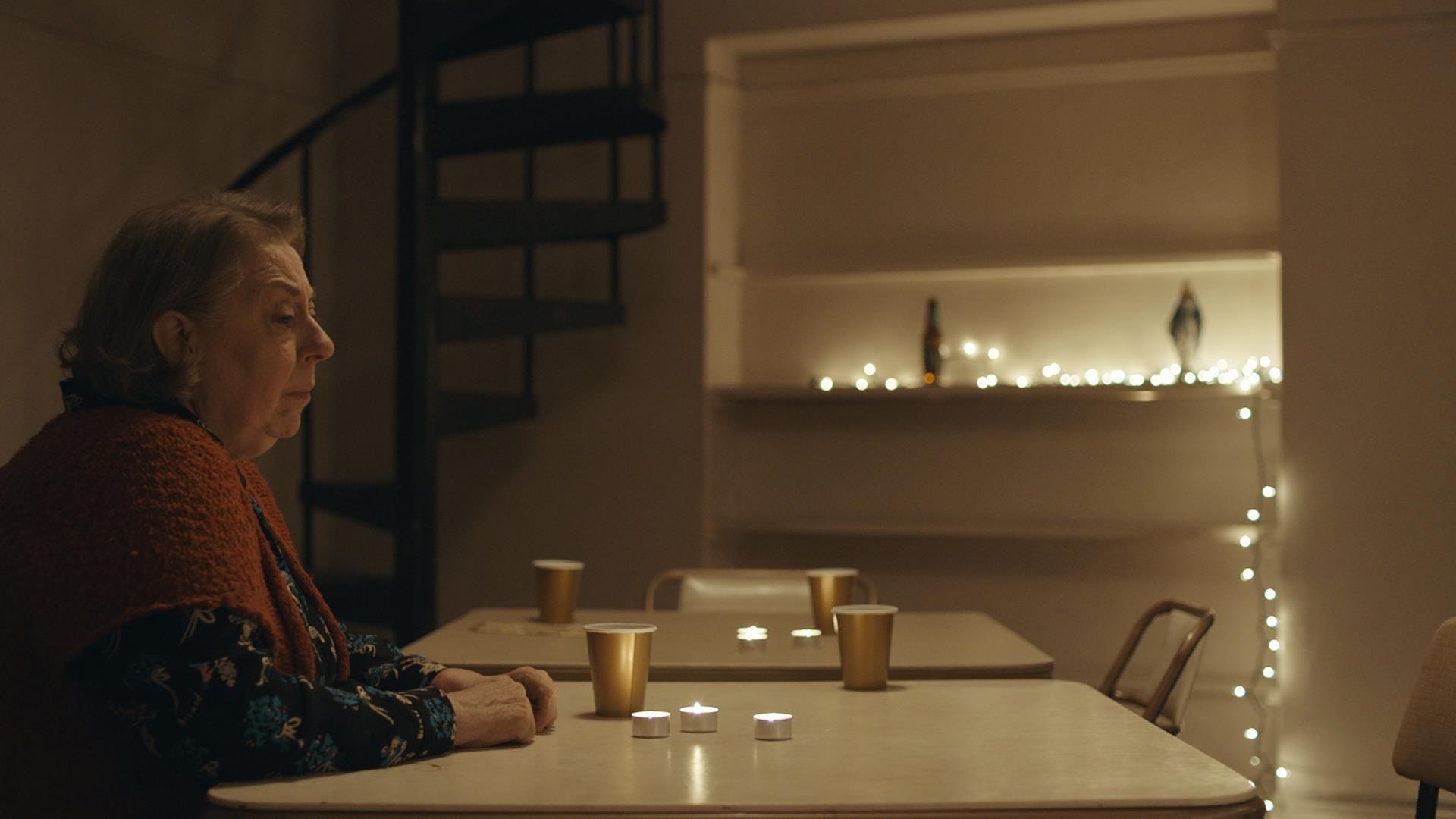
Wait, I take that back: The most unyieldingly bleak Thanksgiving movie of all is “The Humans,” Stephen Karam’s brand new film adaptation of his 2015 Tony-winning play. It premieres on Showtime Wednesday the 24th – just in time for everyone to arrive home at mom’s house and settle cheerily in front of the TV – and it is both intensely compassionate and merciless in its O’Neill-like depiction of a family on the verge of being swallowed by an existential abyss. The cast is stellar: Richard Jenkins as a flawed father, Amy Schumer and Beanie Feldstein as daughters struggling with demons personal and familial, Steven Yeun as an earnest boyfriend, and the magnificent Jane Houdyshell recreating her Tony-winning role as the mother. Even more than “Krisha,” this is the holiday film as horror movie, the characters gathering in the under-furnished New York apartment of one of the daughters as upstairs neighbors mysteriously bang away and heavy machinery grinds behind the walls. Karam lays on the surreal unease too heavily at times, but the actors come to his rescue again and again, creating a terribly moving portrait of an American family as the lights go out one by one.
“Next to “The Humans,” then, “Pieces of April” (streaming on Amazon Prime, for rent elsewhere) is practically a bedtime story. Still, I wanted to take a fresh look, to see whether I’ve changed or, um, the film has. It was the first to be directed by novelist-turned-screenwriter Peter Hedges (“What’s Eating Gilbert Grape?”) and it does have the jaggedly filmed air of a cash-strapped indie. April, kohl-eyed and pixie-tressed, shambles her way through what is sure to be a Thanksgiving disaster, with canned cranberry sauce and a turkey that looks unappetizing even before it falls on the floor. Then her oven goes on the fritz and April has to traipse up and down her walk-up’s stairwell begging someone to let her in for a three-hour bake. She meets a warmly helpful Black couple (Lillias White and Isiah Whitlock Jr.) and an inviting Chinese clan; there’s also an uptight young neighbor cartoonishly played by Sean Hayes of “Will and Grace.” Meanwhile, April’s family is dreading the drive in to see their prodigal daughter, especially the terminally ill mother played with grand comic bitterness by Patricia Clarkson, who I thought was the best thing in the movie in 2003 and still do.
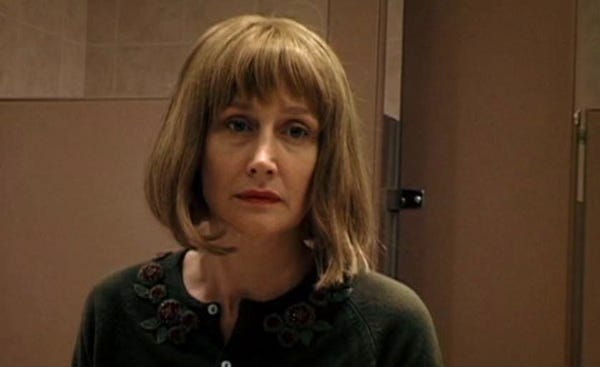
A lot of people love “Pieces of April,” and I recommend it to you with all of my shriveled critical heart. My issue remains with Holmes, a perfectly fine actress who is perfectly miscast as a downtown malcontent. Put her in Doc Martens and she’s still as cute as a bug. April has alienated almost everyone in her life; Holmes is as threatening as bubble tea. That miscalculation throws the rest of “Pieces of April” out of whack and reveals its essential inoffensiveness. It’s a movie that wants to bite and leave a mark but only ends up gumming the audience affectionately. Which I guess some moviegoers like.
What I wasn’t prepared for was the ending, which admittedly warmed my heart the first time (or so I said in my review) and this go-around flooded me with feelings. Okay, Bill, I choked up, are you happy? Are movie critics as Pavlovian as anyone else, and if you ring the bell right, we’ll start salivating? Or am I experiencing the movie as a different me, one grieving over the hole left by children who’ve grown up and out and lit up with gratitude at the prospect of their return? I think I know the answer to that one. Happy Thanksgiving to you all, hold your families as close as you possibly can, and to Cousin Bill – next year in Morristown.
If you enjoyed this edition of Ty Burr’s Watch List, please feel free to share it with friends.
If you’re not a paying subscriber and would like to sign up for additional postings and to join the discussions, here’s how:
If you’re already a paying subscriber, I thank you for your generous support.


